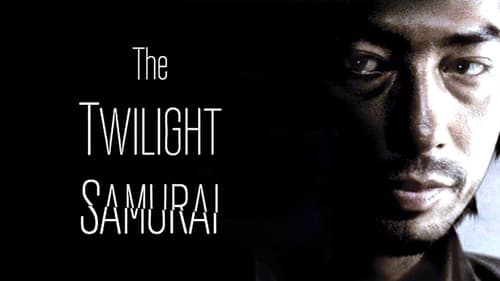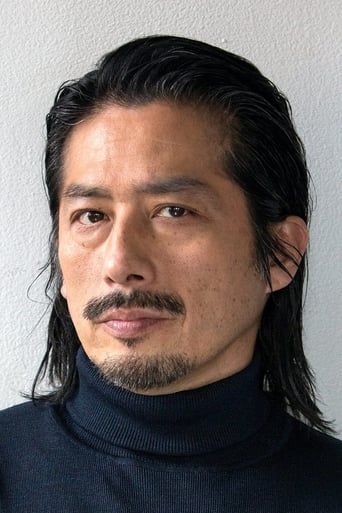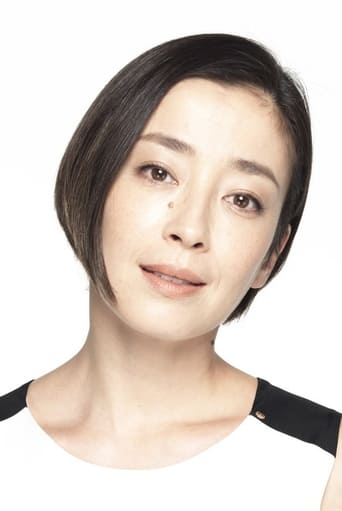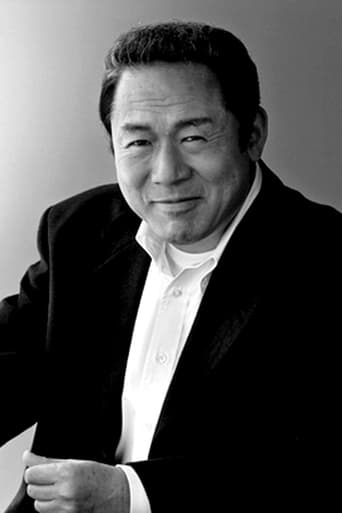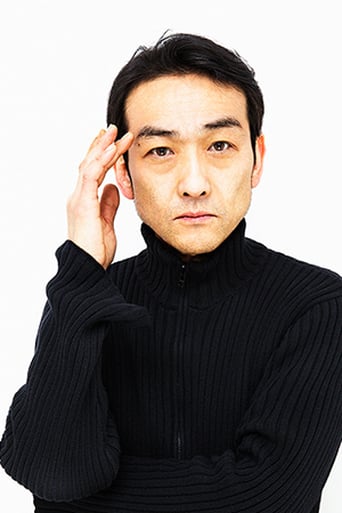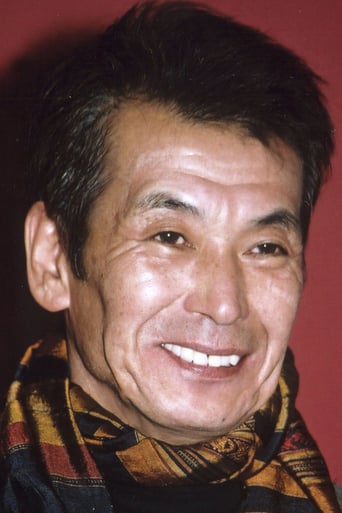SpuffyWeb
Sadly Over-hyped
SunnyHello
Nice effects though.
Afouotos
Although it has its amusing moments, in eneral the plot does not convince.
Vasilis Topouzis
The kind of film that Hollywood lack.
In other words, focused on what it supposed to show without pushing any modern liberal ideologies that are Irrelevant with this film. Also the actors gave a very pleasing performance.
Pier Giorgio Girasole
I think I've seen this movie five times or more. The reason is simple. In merely two hours we can see both the style of Kurosawa, Ozu and Mizoguchi (the three great directors of the Past) filtered trough the lens of another great film maker, Yamada Yoji, who teach us a precious way of living. Simple and not ambitious. But that can be remembered forever. I think the samurai movie setting, resembling to Kurosawa's "Yojimbo", "The seven samurai" or "Red Beard", is just the scenery where the action takes place. The hero, the samurai Seibei, however, is alone here too but with a difference. He has a family. Something Kurosawa should have not underlined. The family is poor and weak and the samurai has seen his wife passing away and so,after all that, needs to rise up two daughters and look after his old mother. This element could make use think to Ozu productions. However we can find another clue. The female characters so important in this story as well as for the early movies of Mizoguchi, as "Osaka Elegy" and "Sister of Gion". Our hero Seibei then, start a love relationship with a woman, Tomoe, a childhood friend, then divorced from her husband. In this one character, the woman one, we have bounded together the sufferings stressed by Mizoguchi, the mute feelings of Kurosawa (the love between Katsushiro and Chiko in "The seven samurai") and the motherly sweet attitude of many woman in Ozu movie (think to the majestic role of Noriko in "Tokyo Story"). The way the movie develops is so great that you can feel the same of what is felt by the main character. His anxiety, his duty but, after all, his love. And not an ordinary one. A feeling that embraces both his family and Tomoe. Another time, as in Ozu's movies, the obstacle of all this is just the social life. The contrast between simplicity and austerity is stressed by the career and duty Seibei has to follow. The same duty that can be accomplished just because, seems to tell us the director at the end, he forgets for a while his beloved ones. However, and we have the greatest an unique point of this story,that makes it so different from common samurai movies, the same ones wait for him in the last sequence. So, when the work ends, a man should have something to protect. Duty is necessary but transitory. Love is something up to people but eternal. As the memory of Seibei when his younger daughter, already old, put some flowers over his grave. Close to the one of Tomoe. Japan has changed, from a samurai country trough an industrialized one. His duty was part of the past. The memory of Seibei's love and devotion to his dears not. Is eternal.
BustedKnees
A true master piece in my opinion.Set in the early days of the Meiji Restoration, when power was being returned to the Emperor and Japan was in a period of rapid modernisation, this charming film shows that the choice of accepting change is a very personal one.The main character is a samurai clerk who has moved away from war, and has found delight in spending a lot of time with his daughters. However, when his clan sides with the traditional ruling Shogunate against the Imperial forces, he has to make some very crucial decisions about his life, and his family.Beautifully filmed with a refreshingly slow pace, this is a superbly made film in every way.
avik-basu1889
When you see the word 'Samurai' in the title of a Japanese film, you sort of expect it to have innumerable fight scenes, a lot of stunts and bloody violence. But 'The Twilight Samurai' is so very different from most of the other Samurai films. It involves very little fighting. This has been clearly made by a director who is more concerned about the Samurai as a person and less so about his fighting skills. Yoji Yamada shows us the life of the Samurai, his loved ones, the real problems that he faces and how he manages to survive in a fast changing society.The film opens with the voice-over from Ito, the 'Twilight' samurai's daughter at a later stage in her life. She tells us how she and her elder sister lost their mother and how their father Iguchi Seibei had to take up all the duties and responsibilities of the family. He had to take care of his young daughters and a senile mother. He works as an accountant in the stores castle of the clan. In his effort to take care of his family, he becomes distant from his work colleagues and couldn't mingle with them. He starts taking very little care of himself and his appearance and gradually develops and dirty, shaggy look and acquires foul body odour which leads to an embarrassing encounter. While watching all this I couldn't help but notice how humanistic an approach Yamada employs to tell us the story. The characters are very realistic, they say things which are very natural and believable, no one shouts too much as is the case in some other Samurai films. The scenes involving Seibei at his home with his family reminded me so much of Pather Panchali which was the first film in Satyajit Ray's masterful "Apu Trilogy". There is a similarity in how both the films show the families living their lives. There are elevated shots in Twilight Samurai where we see different characters in the same frame doing different things and walking in and out of the shot which lends a great deal of humanistic naturalism to the scenes and the film as a whole.Although the film is understated, quiet and intimate with real, relatable people, but Yamada still manages to use bigger themes. He shows how times were changing, the Samurai breed were slowly losing masters and becoming extinct. Japan was going through times of famine and civil wars. We see changes in society, with girls going to school and studying, soldiers learning to use guns,etc. But Yamada shows that obedience of the caste system was still deeply ingrained in the minds. People keeping to themselves and leading innocent lives still bowed down to their superiors in the social system and had to carry out every order that the authorities gave them. The factions in power clashed against each other ideologically but used common, ordinary folks to do their dirty works. Iguchi is an example of a good, hardworking individual who falls prey to conventions of bowing down to power and ends up endangering his life to carry out the order given to him against his own will. The film ends with a fascinating duel which is more about a clash between contrasting ideologies of a Samurai than a mere clash between two swords, as a matter of fact it can be called a duel between two sides of Iguchi's mind and it is brilliant.The film is colourful and it uses good interior as well as on- location cinematography. Yamada uses simplistic style of cinematography and camera-work. Instead of fancy tracking shots and zoom-ins, he uses the static camera to great effect. He allows the camera to stay calm like the characters and allows the actors to act.Although there are other good performers, but this film belongs to Hiroyuki Sanada. He is understated, subtle and uses his eyes a lot. However when it comes to the few fighting scenes, he perfectly goes through the transition from being an ordinary human being to a deadly Samurai.The Twilight Samurai is a very deep, intimate film with humanism. Yoji Yamada does use big themes, but never allows his actors to fade into the background.

